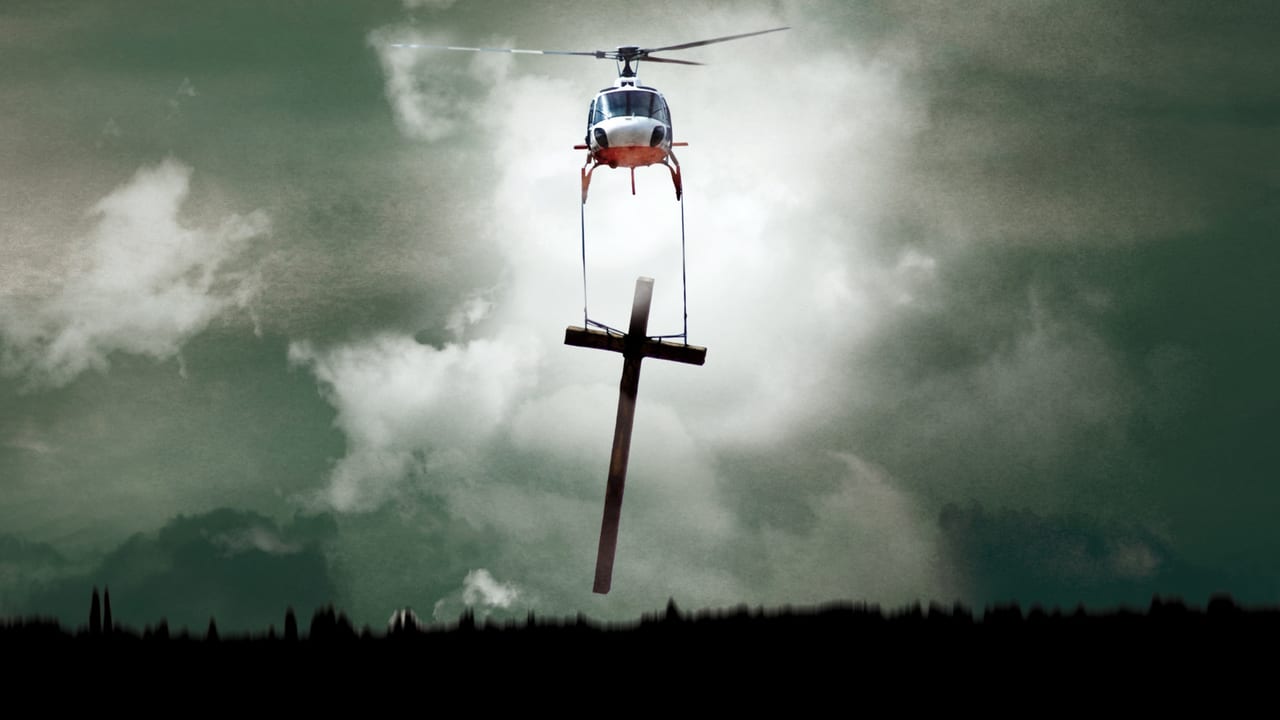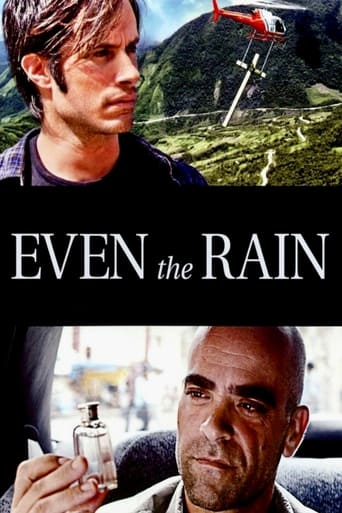

I really enjoyed the film "Even in the Rain" because the movie had two stories going side by side. It was like a movie inside a movie, which was one thing that I really enjoyed about the movie. Overall the movie was very easy to understand. There might have been one scene that was not that clear to me but I got the general idea of it anyways so it was not really a big problem. If this was an American film the problem would have been solved in the movie, so it different from American films. To my understanding the problem was not resolved in this film. This film taught me how people in other parts of the world are living today and that people do not have the things that we take for granted all time. Also this film sort of taught us about the past which I taught was very interesting. It showed us how the British were treating the Natives. If was the director of this film I would have made it so at the end of the film everyone had water.
... View MoreI thought that the most interesting part about this film, was how there were truly three different stories taking place, for the most part, irrelevant to each other. The story of the water crisis in Bolivia which launched the protest, the filming process, and the actual plot of the film being made, which was about the Bolivians. I think that an important aspect of the film was how drastically the two main characters changed! Sebastien and Costa were generally pretty selfish regarding their film they were making. However, I think towards the end, Sebastien began to understand that sometimes life is more important than a film! When Costa explained to him that he had to go the hospital to try and save the little girl, instead of finishing the film, I think it really opened Sebastien's eyes, as he would've been out of place and selfish to try and stop him from saving a life. I also think that a good and worthy discussion topic for this film would be the bad light that was shed on the government who were taking the Bolivians' water. However, I can understand both sides of the crisis; although it's not fair for their water to be taken away, it is the only rational option. If there is a water shortage, I think the government HAS to come in and take over the situation, because ultimately they are trying to do what is best for everyone, and the people of Bolivia alone could not manage the water crisis, since it's such a huge and fragile job. At the beginning of this film, I didn't really like it because I was a bit lost and confused as to what was going on, and why there seemed to be multiple different stories taking place. Then, the film grew on me, and I started to understand what was going on. Also as the film went on, for me, it got more interesting and more action started to happen. This film also put into perspective, once again, how lucky we are to have been born in countries such as the U.S, (or in my case, Canada!) For the most part, we have all the resources we need in order to survive, and do not have to worry about whether or not we will be allowed or denied access to a basic survival need, like water. I feel so lucky not to be somewhere like Bolivia, because I cannot imagine the stress and trauma the Bolivians go through, just fighting for water! To us, water is a simple thing and is available at all times. What do you think you would do if we got our water suddenly taken away from us? What do you think Americans in general would do? Do you think they'd start a big protest like the Bolivians?
... View MoreI did not expect this film to be the way that it is. I expected the film to be about only water and potentially a water crisis. I never expected that Christopher Columbus would be involved. I did enjoy the fact that they placed in parallels between the film about Christopher Columbus and the Bolivian Water Crisis. Overall, I really enjoyed the film. I found it strange that there was no clear "bad guy" in the movie. In most American films, there is a good guy and a bad guy. Mostly the good guy wins. In this film, everyone seemed to be both good and bad. The native people were fighting for their water, but they also attacked people before they were attacked. The water company that was coming in was helping the people to get water, but it also charged a great deal of money to the people. The government had to outsource the water, making the people angry, but if the government hadn't done so, the people would have no water at all. Also, just like Christopher Columbus came into America and exerted his power over the natives, so do others. The water company from America and Britain comes in and places a large price on all of the water, making it almost impossible to buy. Also, the production team working on the movie comes in and imposes themselves on the people. They pay them only two dollars a day while the rest of the crew lives in a highly expensive hotel. In the beginning of the film, it seemed like Costa cared more about the film and about the money then Sebastian, who seemed to care about the people more. But as the film continues, Sebastian becomes more focused on the film. And Costa risks his life to save Belen, a girl who was an extra on the set.
... View MoreI found it very easy to identify with all of the main players thanks to some great performances from all involved and also a really nicely written script. It's really well shot with nice big, easily legible subtitles (more like this please foreign filmmakers!). It was interesting to see a film set in that region, we don't see very much from that part of the world. There are also some historical facts about the conquistadors that I wasn't aware of and so it even educated be a little! I love the way it slowly dawns on the crew that the mistakes made 500 years previously are still being made today! Over all, I found it well worth a look and it's one I would certainly look at again sometime.SteelMonster's verdict: RECOMMENDEDMy score: 8.3/10You can find an expanded version of this review on my blog: Thoughts of a SteelMonster.
... View More